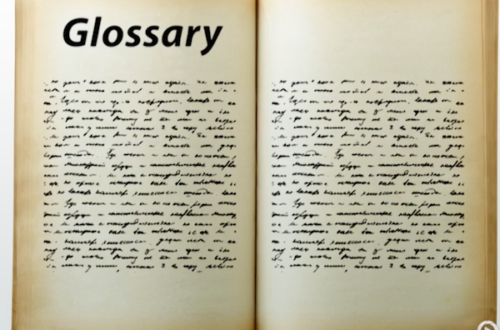I am going to tell you a story. It is what we all do in academia, really, tell stories. We tell stories to our students to help them learn, stories to our colleagues of our latest discovery, stories to readers of journals or books to spread our research. As mother academics, we tell other kinds of stories too. The kind that we read at bedtime to our children when our eyes are burning and our mind is brimming with all the writing we didn’t get finished. My son’s favourite story for a long time was called Don’t wake the Beastie. It’s a story about five animal friends trying to reach some honey, but they must be careful not to wake the beastie because he will eat them all up. One after the other, the friends climb on each other’s backs until the final friend grabs the honey. Except, there is a bee and it makes all the friends fall. And you can guess what happens next—no he doesn’t actually eat them, though their fear is real—the beastie actually wants to share the honey with them. The first time I read this story, I was struck by the fact that this was academia. The honey is that is just out of reach is a lectureship job, and the only way to get there was to rely on colleagues, friends and family to support you to the top. There would be failed grants and fellowship applications (I can’t reach!), casual teaching at the university is the beastie—it will gobble you up and spit you out, or maybe, just maybe, it will share the honey with you instead. But what would have happened if there had been no friends to help reach the honey? That is what it is like to be a single parent in academia. You must try and reach that honey all by yourself. And it is HARD, and everything is against you.
Every academic parent shares some of the same challenges within this world—especially balancing the demands of home with the demands of the ivory tower. Those are real, and important and hard, and I am not here you tell you about those, because they are well known. I am here to tell you about the extra challenges in being a single parent, for these challenges are my story, my beastie—and right now it’s looking to eat me up, not share the honey.
Single parenthood didn’t matter very much during the PhD itself. My first child had been born just at the end of my bachelors, her father took off during pregnancy and so it was just us. Yet I still completed my masters in a year, while working and raising her. My second child—donor conceived—was born in the second year of my PhD, and even though I took maternity leave, I continued to work and finished my PhD in the 3.5 years allocated to Australian postgraduate students. Clearly, single parenthood sharpened my multi-tasking and time management skills, and the three of us managed the balance well. There were—as for many mothers—opportunities I had to pass up, lectures or dinners in the evening, events out of town, careful selection of archives for research material because travel was limited, but these were nothing compared to the challenges presented when I submitted my thesis and my scholarship stopped.
As with every early-career researcher who hopes to make it in academia, as soon as the PhD is finished, attention is turned towards publications. In the humanities, turning the thesis into a book is always the first priority, along with trying to wrest out some journal articles, and the never-ending writing for job applications and fellowships. For anyone who has ever written these things, you know they all take time. This is not unique to single parenting. What is unique, and I think more difficult for single parents, is just how we are going to manage to find this time. This comes down to the twin problems for single parents that are infinitely interlinked: time and money. Here is the catch 22 for a single parent in early academic careers—to gain time to write, you have to find care for your child. For children old enough, there are those six precious school hours, but for younger children, some form of child care is needed. Childcare costs money. Where does a single parent get money? There are really only two ways—work or government benefits. When you are teaching, that takes away the time in which you are writing, meaning it takes longer to complete an article—or book—than someone who doesn’t have the pressure to work. However, if you don’t teach, government benefits don’t stretch far enough to cover the costs of child care, so there is no writing time at all. So how to balance it all?
Nicole Westmarland wrote ‘The idea that “work” and “life” can be divided into neat boxes and then “balanced” is a fiction’ and this is a true-ism not just for me, but I think for many single parents. I’m not balanced. There are nights after the children are in bed that I write until 3 or 4 o’clock in the morning. I teach when I can, as much as I can, and hope that I’ll earn enough to keep the children in child care when I am not teaching. Caring less about teaching and putting in less effort to prepare for class could be a way to “steal” more time for writing, but the fact of the matter is that I went into academia so I COULD teach, and I think this is where casualisation of academia is failing the students. But that is a different presentation. I keep multiple Word windows open, a book chapter, couple of journal articles, a presentation or lecture, a fictional piece, and I hop between them.[1] If inspiration dries from one, I flick to another. I only apply for jobs or fellowships that I think I have some chance at receiving, as each application takes time away from writing’.
Yet even succeeding and getting a fellowship can be harder than being rejected. Three years ago, I won a small in-house sponsored fellowship at The University of Melbourne. The purpose of the fellowship—which was only open to graduates of the school—was to build a journal article or book proposal in four months, with career development support. The money offered with the scholarship was A$2,000. At A$500 a month, this is just enough to cover the full cost of child care for my son for three months. However, it didn’t cover the costs of before- or after-school care for my daughter, nor holiday care which is infinitely more expensive—and it was holiday time so she was home with me. Nor did it cover food or any other kind of bill. But to turn down the scholarship meant months of no income at all, given that casual teaching staff do not receive pay when university is shut. So, I attempted the impossible, to write this article with one child at home. In short—I did not succeed. The money ran out, the promised support never materialised, and I am left with a half-written article I am still (three years later) trying to finish.




